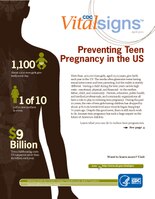
Photo from wikipedia
BACKGROUND Changes in care may mean women with serious mental illness (SMI) are more fertile. We investigated 1) the live-birth and pregnancy rate of women with and without SMI over… Click to show full abstract
BACKGROUND Changes in care may mean women with serious mental illness (SMI) are more fertile. We investigated 1) the live-birth and pregnancy rate of women with and without SMI over time, 2) the likelihood of pregnancy when using second or first-generation antipsychotics. METHOD Retrospective cohort study of women (15-45 years) registered in Clinical Practice Research Datalink (CPRD) general practices between 1992 and 2017. Each analysis year, women with SMI (affective and non-affective psychotic disorder) were matched with up to four women with no record of SMI on age, calendar year and general practice. Pregnancy and live-birth rates and the rate ratio (RR) comparing women with and without SMI were estimated. The stability of the RR between years was tested. For women with SMI, the pregnancy rates when on or off first or second-generation antipsychotics were calculated and compared using Poisson regression models. RESULTS In total, 12,524 women with SMI were matched to 50,074 women without SMI, median age 34 [IQR 28-39] years. Between 1992 and 2017 women with SMI had 50% fewer live-births than women without SMI (RR 0..50, 95%CI 0.45-0.55). The pregnancy rate ratio increased from 0.64 (95%CI 0.48-0.86) (1992-1994) to 1.00 (95%CI 0.81-1.22) (2016-2017), (p < 0.0001), but this change was only seen in women with affective disorders. Women are most likely to become pregnant after discontinuing either a second-generation or first-generation antipsychotic (RR 1.74, 95%CI 1.42-2.13). CONCLUSIONS Women with SMI are increasingly experiencing pregnancy but not live-birth, which suggests the reproductive health needs of these women are unmet.
Journal Title: Journal of affective disorders
Year Published: 2020
Link to full text (if available)
Share on Social Media: Sign Up to like & get
recommendations!